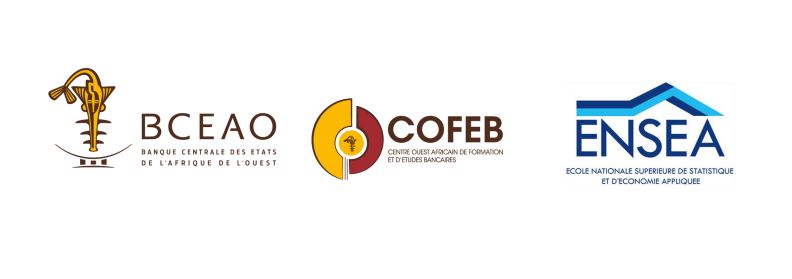 The entry into force of the Basel 2 and 3 prudential regulations in January 2018 in WAMU has induced the need for credit institutions to hire qualified experts in the field. In this context, COFEB, in partnership with the École Nationale Supérieure de Statistique et d’Économie Appliquée (ENSEA), decided to combine their skills with a view to providing a high-level training program focused on banking regulations to banking sector executives in WAMU, students and central bankers. This program should allow participants to understand the logic that guides the regulation of the banking sector, starting from the basic concepts to more elaborate concepts such as statistical modeling of certain parameters defined by the Baltic rules.
The entry into force of the Basel 2 and 3 prudential regulations in January 2018 in WAMU has induced the need for credit institutions to hire qualified experts in the field. In this context, COFEB, in partnership with the École Nationale Supérieure de Statistique et d’Économie Appliquée (ENSEA), decided to combine their skills with a view to providing a high-level training program focused on banking regulations to banking sector executives in WAMU, students and central bankers. This program should allow participants to understand the logic that guides the regulation of the banking sector, starting from the basic concepts to more elaborate concepts such as statistical modeling of certain parameters defined by the Baltic rules.
Content training
The training program is structured around the following three (3) modules
”Introduction” module : This module aims to give the basics of the banking environment and its challenges. It covers the main principles of bank management and the importance of regulations. It also provides a financial culture on the major crises and bankruptcies that have occurred in the financial sector.
”Common Core” module : This module aims to provide learners with knowledge on the requirements of the regulatory text, the organization of banking supervision, the principles of determining the various ratios intended to ensure the resilience of the financial system, the internal organization of banks to meet these requirements and finally the financial communication around the regulatory requirements.
”Specialization” module : This module aims to give concept on risk modeling, to present techniques and approaches to modeling parameters for estimating credit risk (probability of default, loss given default, exposure given default, CCF, …). It also addresses the issues related to the use of models.
FACILITATORS
The training will be led by a team of lecturers affiliated with ENSEA with the support of resource persons from COFEB. It is planned that representatives of the Financial Stability Directorate (DSF) will be involved in the program, teaching on regulatory issues.
As a center of excellence, ENSEA has access to a pool of qualified trainers made up of its own lecturers and former students who are now working in the professional world on the subject.
TARGET POPULATION
The target population is composed of executives of credit institutions and Central Banks.
Two (2) categories of credit institution staff are concerned by the training offer:
- Professionals involved in the implementation of the Basel regulations, in particular the staff of the Risk and Internal Audit Departments of the banking institutions. These are managers who are specialists in the operational implementation of Basel 2 and 3. Central bank executives are also considered specialists. This category will follow the three (3) modules of the training;
- Managers directly involved in the implementation of Basel 2 and 3. This audience is considered “non-specialist” in prudential matters. They include sales teams (portfolio managers and other branch staff), support teams (back office) and internal functions (commitments, finance, management control, reporting, etc.). They will only follow the first two (2) modules of the training (Initiation and Bâloise Regulations).
TERMS AND CONDITIONS OF THE TRAINING
Training sessions will take place on ENSEA premises. This training terms and conditions are preferred to allow a better interaction and an enhanced understanding of the notions. The possibility of distance learning will be envisaged at the end of the first year if this need is confirmed by the stakeholders, namely the banks.
The duration of the training is set as follows:
”Introduction” module: 2 days
”Common core” module: 3 days
”Specialization” module: 5 days
The first training session will be launched in April and others will be scheduled throughout the year.
ADMISSION REQUIREMENTS AND TRAINING PROMOTION
The admission requirements for each of the training courses are specified as follows:
- The “Introduction” and “Common Core” paths are open to all financial sector employees who wish to learn about Basel 2 and 3 regulations.
- For the “Specialization” path, candidates must come from financial institutions and work in risk management or any related field.
Participation in each training module leads to a certificate of attendance. The certification is subject to the participation in the 3 training modules as well as passing the reated tests.
HOW TO REGISTER
Registration and enquiries can be made using the forms below:
- Information request: +225 07 77 86 34 66
- Registration request
TABLE OF CONTENTS
LATEST NEWS
Launch of the joint CBWAS-COFEB/ENSEA training
The Ecole Nationale Supérieure de Statistique et d'Economie
Training certificate on banking regulation in WAEMU
COFEB, in partnership with the École Nationale Supérieure



